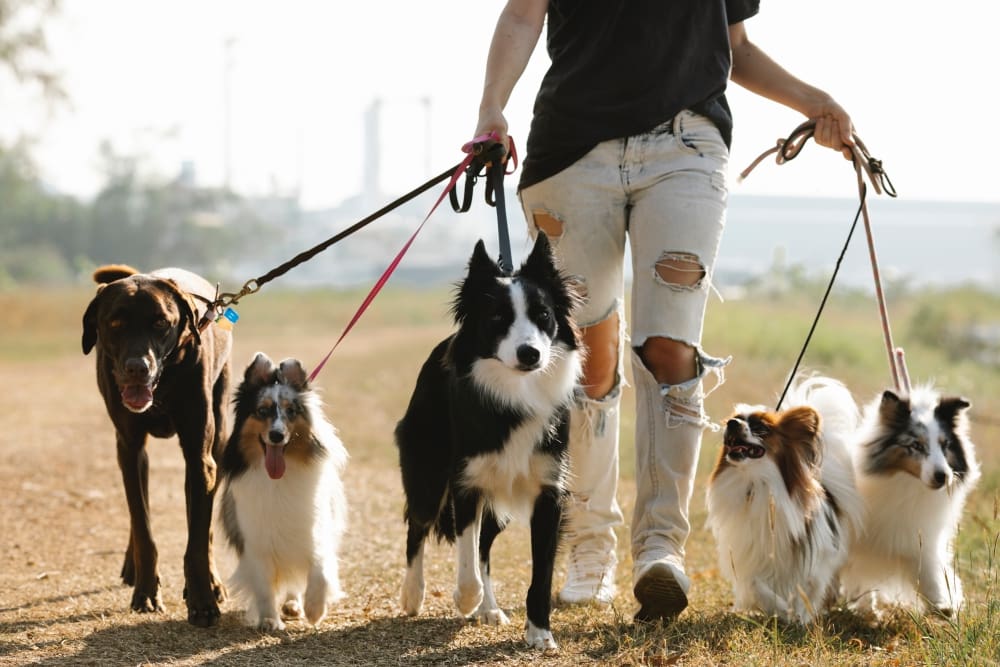Essential Information
You’ve arrived in the Netherlands with your pet. What now? On this page, we will walk you through some of the essential things to know about being a pet owner in the Netherlands!
Dog walking service
If you are not able to walk your dog during the day, you can use a dog walking service. You can choose for a walker who walks your dog on its own, or as part of a group. You can find local services by searching for “Hondenuitlaatservice” or “Hondenwandelaar”.
Walking Areas
If you live in a built-up area, your dog must be on a leash. There are designated off leash areas called losloopterrein or losloopgebied (you can search for the nearest ones in your area). These are marked by signs. If you live in a more rural area, you can usually let your dog walk off leash, but be sure to check for signs in the area if you are in doubt. If you let your dog off leash in an area where that is not allowed, you could be fined €90 or more.
Dog waste
You have to clean up your dog’s waste within built-up areas. If the police catch you leaving waste behind, you can be fined €150. There are special bags for sale in the shop to collect the dog waste. Occasionally, these bags can also be found in walking areas next to a container where the used bag can be disposed of.
Dog Taxes
In some municipalities, you must register your dog within 14 days either in person at the local municipality (gemeente) or digitally via DigiD.
Dog tax (hondenbelasting) varies from one place to the next, and will cost approximately €60 – 150 per year. There are additional charges for each dog you have. Cats and other animals do not require registration and are not taxed.
As of 2023, in the northern provinces, only the municipalities of Leeuwarden, Smallingerland and Vlieland collect the dog tax.
Since 2022, the dog tax has been abolished, and therefore you are no longer required to register your dog(s) in the municipality of Groningen.
Dog taxesRegister You Pet’s Microchip
It is important to register your pet’s microchip number with the Nederlandse Databank voor Gezelschapsdieren (Dutch Pet Database)
Ticks and Flees
Ticks are most active from March until October, mainly with humid weather. Check your pet after a walk in the forest, grass, or bushes. You can get special tick tweezers at the pet shop. In spring and summer, your pet may be bothered by fleas. Fleas live on dogs and cats but hardly ever on humans, although humans can be bitten by fleas. Ask your vet or pet shop about preventing or treating fleas.
Veterinarians
Most veterinary care is excellent in the Netherlands, and veterinarians are well trained. You will find a vet in most neighborhoods, and they will have a 24-hour emergency number. You can find your nearest vet on the internet under “dierenarts” or “dierenkliniek”.
Kennels
You can find a place for your dog or cat to stay during the holidays in a hondenpension, hondenhotel or hondenopvang. This might be in a group or in a home setting. There are numerous arrangements to be found on the internet.
Missing Animals
Make sure your animal is wearing an identification tag with your contact details. In case of a missing animal, you can fill in a form on the Nederlandse Databank voor Gezelschapsdieren (Dutch Pet Database) website or contact the Dierenambulance (animal ambulance) at 0900-0245.
Many cities also have Facebook groups that can be found by searching vermiste dieren in the area you live.

